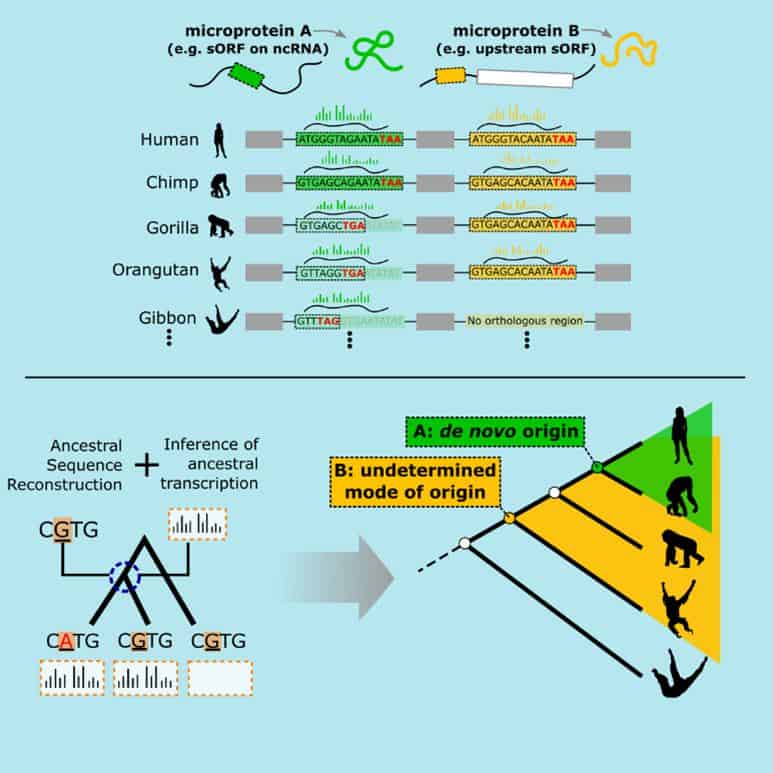Approximately 7 million years ago, the ancestors of modern humans diverged from chimpanzees. Despite this ancient split, human evolution has continued, and 155 new genes have been identified in the human genome that arose from small sections of our DNA.
Some of these microgenes have been traced back to the early evolution of mammals and may be linked to human-specific diseases.
The findings were published today in the journal Cell Reports.
“This project started back in 2017 because I was interested in novel gene evolution and figuring out how these genes originate,” adds first author Nikolaos Vakirlis. “It was put on ice for a few years, until another study got published that had some very interesting data, allowing us to get started on this work.”
The researchers used a previously published dataset of new genes that are believed to be functionally relevant and created a tree to compare the evolution of humans to other vertebrate species.
They traced the relationship of these genes over time and identified 155 that originated from unique sections of DNA.
New genes often come about through duplication of existing genes in the genome, but these genes emerged spontaneously without any duplication.
“It was quite exciting to be working in something so new,” remarks senior author Aoife McLysaght.

“When you start getting into these small sizes of DNA, they’re really on the edge of what is interpretable from a genome sequence, and they’re in that zone where it’s hard to know if it is biologically meaningful,” explains the senior author.
Out of the 155 newly identified genes, 44 of them are associated with cell growth abnormalities in culture, highlighting their crucial role in maintaining the proper functioning of a living system.
Since these genes are unique to humans, it is challenging to directly test their effects. To explore the potential impact of these genes on the human body, the researchers looked at patterns within the DNA that might suggest a connection to specific diseases.
Out of the 155 new genes identified, three of them have DNA markers that suggest a possible link to certain health conditions, including muscular dystrophy, retinitis pigmentosa, and Alazami syndrome.
In addition to these diseases, the researchers also identified a new gene that is associated with human heart tissue. This gene appeared in both humans and chimpanzees shortly after the split from gorillas, illustrating the rapid evolution of certain genes that become essential for the body’s functioning.
“It will be very interesting in future studies to understand what these microgenes might do and whether they might be directly involved in any kind of disease,” adds Vakirlis.
“These genes are convenient to ignore because they’re so difficult to study, but I think it’ll be increasingly recognized that they need to be looked at and considered,” adds McLysaght. “If we’re right in what we think we have here, there’s a lot more functionally relevant stuff hidden in the human genome.”
Source: 10.1016/j.celrep.2022.111808
Image Credit: Getty
